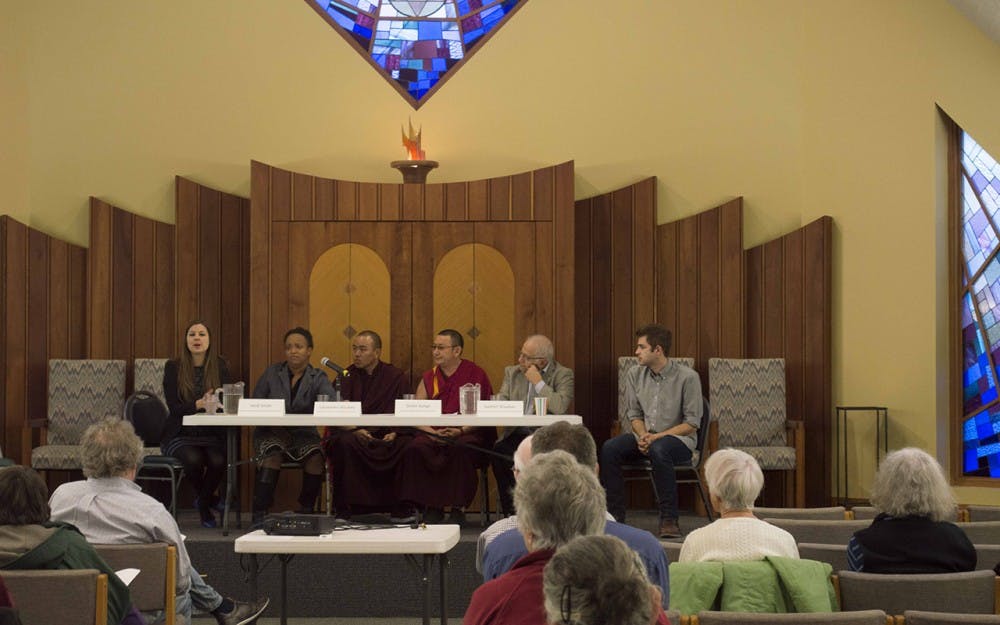Four panel members from refugee centers across Bloomington and southern Indiana gathered Tuesday evening at the Beth Shalom Congregation to discuss the refugee situation and how it related to the Bloomington community.
Heidi Smith, director of Indy Archdiocese Refugee Services; Cassandra Housley from Beth Shalom Task Force on Refugee Resettlement; Geshe Kunga from the Tibetan Mongolian Buddhist Cultural Center; and Kadhim Shaaban, chair of the Arab American Association of Bloomington, were all members of the panel.
Housley and Smith shared stories of their experiences setting up a refugee resettlement center, and Kunga shared, through a translator, his own experience as a refugee from Tibet for the last 56 years and how he walked through the Himilayas and knew he would either leave his country alive or die in the mountains
Shaaban, on the other hand, shared his personal experiences working directly with settling families and the types of resources needed to aid them.
“If you see the suffering of the people walking across the borders of Syria,” Shaaban said. “I remember seeing footage of one child who lost everything. He was about 5 years old, and he was being helped by two refugees into Germany to no future. This is a human dilemma. It requires cooperation and participation. I know it is a part of the Jewish and Christian faiths, and it is a tenant of Islam communities to help the others as their brothers.”
Kunga said in the universe there are so many different types of people, but they are all family. He said when people pray from the bottom of their hearts they create a little bit of positive change in minds and in the world.
The feeling of helping other humans and seeing everyone as a member of the same family was a common theme before the discussion before the panel opened up the floor to questions.
They all addressed ways to have a conversation about the refugee crisis with those who are opposed to the idea. Smith discussed just how strict the vetting process is and how difficult it is to get approved.
“They check out every detail of the refugee’s story, and everything has to check out,” Smith said. “People do not understand the process takes longer than the claimed 18-24 months — much longer.”
Even the smallest detail can mean the difference between getting accepted into the United States and denial, Smith said.
She also mentioned how, with the current political climate, the number of accepted refugees has been capped at 50,000, and the low number is destabilizing a once robust and well-organized system as refugee centers fire workers and cut costs from lack of funding.
For the last year, Bloomington communities have been organizing to help refugees and even had the city approved as a refugee resettlement location through Exodus, which works to arrange housing, food and clothing, case management, as well as education, employment and health services for refugees in Indiana. Diane Legomsky, chairwoman of the Bloomington Refugee Support Network, and several others at Beth Shalom set up a task force one year ago, and the force has grown substantially.
“We basically determined this is something that is happening in the world, and we need to take a stand,” Housley said. “It started with education, spreading the word, making sure people understood the situation. After the first step, we realized there was an energy there, and then we created the Bloomington Refugee Support Network. We began doing ground work, reaching out to other religious communities and had contact with the mysterious entity called Exodus, which would hopefully help resettle refugees.”
With current politics, the process of settling refugees has been flipped, Housley said. Nevertheless, she assured everyone the people in the resettlement programs remain as committed as ever.





